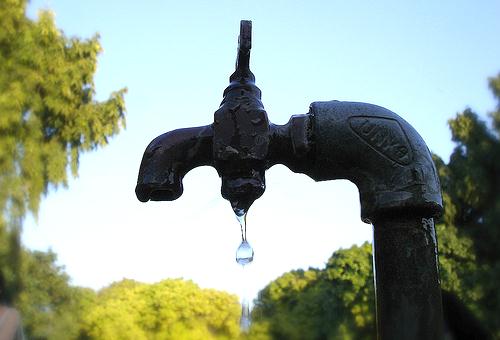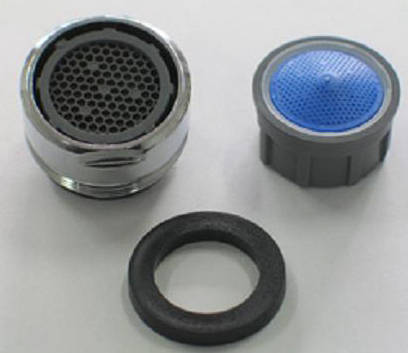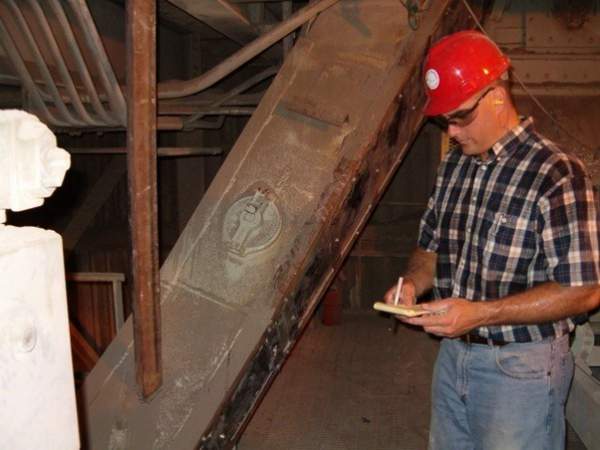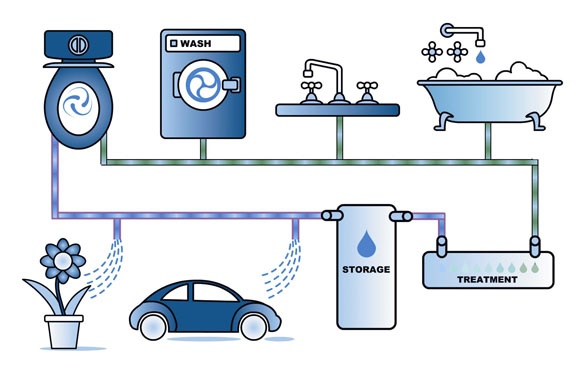10 Ways to Save Water in Industries
How To Save Water In Industries?
We can save water in industries by creating awareness in employees, measuring water consumption, optimum use of water, recycling of waster, installing water saving equipments, routine checks for pipes etc.
Only 3% of water on Earth is pure and can be used for daily routine. Out of 3% water 5-10% (as of 1999) water is consumed for industrial purpose. As world population will grow water consumption also will grow. By 2030 it can go upto 15-20%, so there is need to spread awareness on ways to save water in industries by reducing its consumption. Also it will help Company to reduce their water bills i.e. cess Returns.
Normally in Industry water is used for Plant and equipment cooling, product cleaning and Preparation, cooling, and applying paint and dyes to product.

How to save Water in Industries?
Below mentioned 10 ways on how to conserve water in industry.
1) Educate your employees
Build understanding in your employees why water is important and let them innovate ways to water conservation. You can announce awards in your company for identifying and innovative solutions to reduce water consumption.
2) What is current water Consumption
You need to know your current water consumption to set target for next cycle. It can be month or quarter or year. It will help you to identify peaks times, locations which are using more water, leaks and equipments.
3) Routine Checks
Installation on Monitoring, water pressure meter and water flow meter will help to identify leakage in pipes, joints or valves.
4) Minimal use in Cleaning
To avoid high water consumption we can shift to electric brooms, vacuum cleaner or other cleaning devices (like squeegees etc.) in initial process. Wash equipments as and when required than regularly. Reduce the uses of water sprinkler.
5) Equipment modification
Ensure that sprayer angle is perfect on product. Also use triggers to stop water flow, reduce water flow and pressure wherever possible without affecting performance to conserve water in Industry.
6) Install Water saving Equipments
There are plenty of water Conservation equipments are available. Consider using them. Such as toilet systems, tap aerators, also replace tap from high volume to high pressure and low volume.

7) Water Recycling
It is wrong assumption that all processes require pure drinking water (potable water) in business. We can reuse water (Non-Potable) in plant wherever possible. Let’s say for fire protection, pH adjustment we can use non-potable water. Installation of cooling tower to recycle water with efficient refrigeration loop can save upto 25% of total water consumption.
Lear More Wastewater treatment Processes
8) Ways to reuse Water
We can save water in Industries by Reuse Uhle-box seal water, Reuse of Centrifugal pump seal water, Reuse vacuum pump seal water, use condenser water for steam makeup.
9) Reverse Osmosis
Consider installing reverse osmosis unit to treat water. Although energy consumed by this plant is much higher but it worth it.
10) Effluent and sewage water treatment plant
Installing and maintaining ETP (effluent treatment plant) and STP (sewage treatment plant) in industry area to treat waste water, so that it can be recycled for flush in toilet and floor cleaning.
Do you know any other ways to save water in industries, then please mention in comment.
Perfect Pollucon Services offers Cess return assessment and has experts with technical information to help you identify ways to save water in industries by reducing its consumption and wastes.
Water Conservation in Construction Industry
Water conservation in the construction industry is of paramount importance due to the substantial water demands associated with construction activities. The construction industry consumes vast amounts of water for activities like site preparation, concrete mixing, dust control, and equipment cleaning.
Implementing water conservation measures can significantly reduce the environmental impact of construction projects, conserve water resources, and mitigate the strain on local water supplies. Techniques such as rainwater harvesting, efficient irrigation systems, water-efficient fixtures, and wastewater recycling can be employed to minimize water consumption during construction.
Additionally, promoting awareness and providing training to construction workers and contractors on the importance of water conservation can foster a culture of sustainable water use within the industry. By prioritizing water conservation practices, the construction sector can play a vital role in preserving water resources and promoting sustainable development.
Water Conservation in Service Industry
Water conservation in the service industry is essential to reduce water usage and minimize the environmental impact of operations. The service industry encompasses a wide range of sectors, including hospitality, restaurants, entertainment, and healthcare, all of which rely on water for various purposes such as cleaning, sanitation, and customer services.
Implementing water-efficient practices such as installing low-flow faucets and toilets, fixing leaks promptly, and optimizing water-intensive processes can significantly reduce water consumption. Additionally, raising awareness among employees and customers about the importance of water conservation can foster a culture of responsible water use within the service industry.
By prioritizing water conservation efforts, the service industry can contribute to the overall sustainability goals and help conserve this valuable resource for future generations.
Water Conservation in Industry PowerPoint Presentation (PPT):
Below are some important FAQs:
Water can be saved in the industry by altering human behaviour, changing instruments/types of equipment which can save water, reuse of water to reduce consumption.
Turn off taps when not in use, reusing non-potable water from other operations, setting up ETP and STP for water on company premises, replacing leaking types of equipment, replacing outdated types of equipment with energy-efficient alternatives and harvesting rainwater to meet water requirements can be some of the best ways for industry to reduce water waste.
Industries discharge effluents (basically harmful chemicals) in nearby water sources such as rivers, lakes, streams, and sewers. Industries also dump oil, toxic chemicals and other harmful liquid in them.
Harmful and heavy chemicals disturb aquatic life as it contaminates the water. It affects their lifespan, ability to reproduce and physically weak. This affects the top of the food chain. e.g. Mercury from fish can enter the human body because mercury is the chemical found in wastewater from industries.
Adapting new efficient technologies, recycling, Cleaning of water resources after use, water treatment to remove complex chemicals, Planting trees nearby, Stricter laws and enforcement for those who do not follow proper protocol and regular Environmental Impact Assessment Survey.
Share this Article with your Friends:




My sister would like to reduce her water bills, which is why we’re thinking of having a Well installed in her backyard because this may help decrease the bill. Thank you for sharing here that the water pressure meter and water flow must be monitored regularly. It’s also a good thing that you clarified here the importance of installing tap aerators.
Thank you Rachel. 🙂